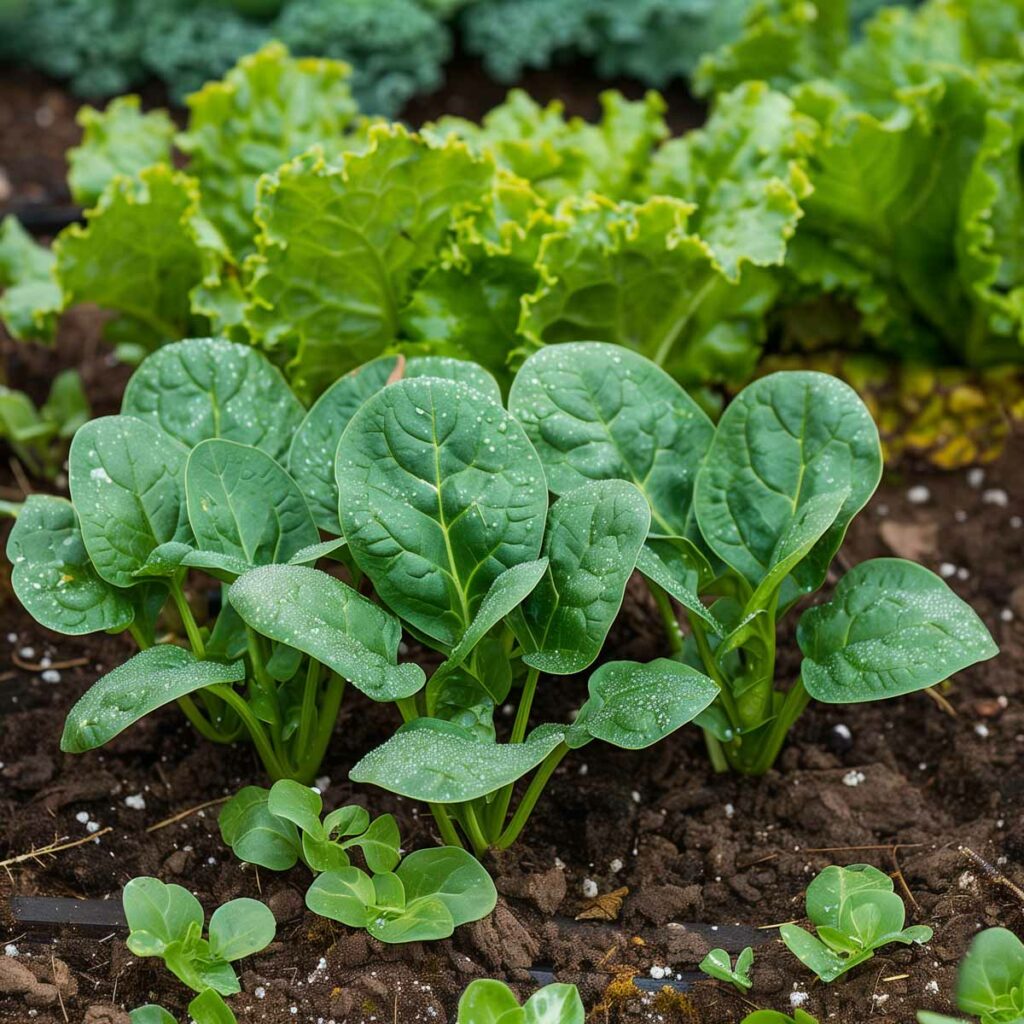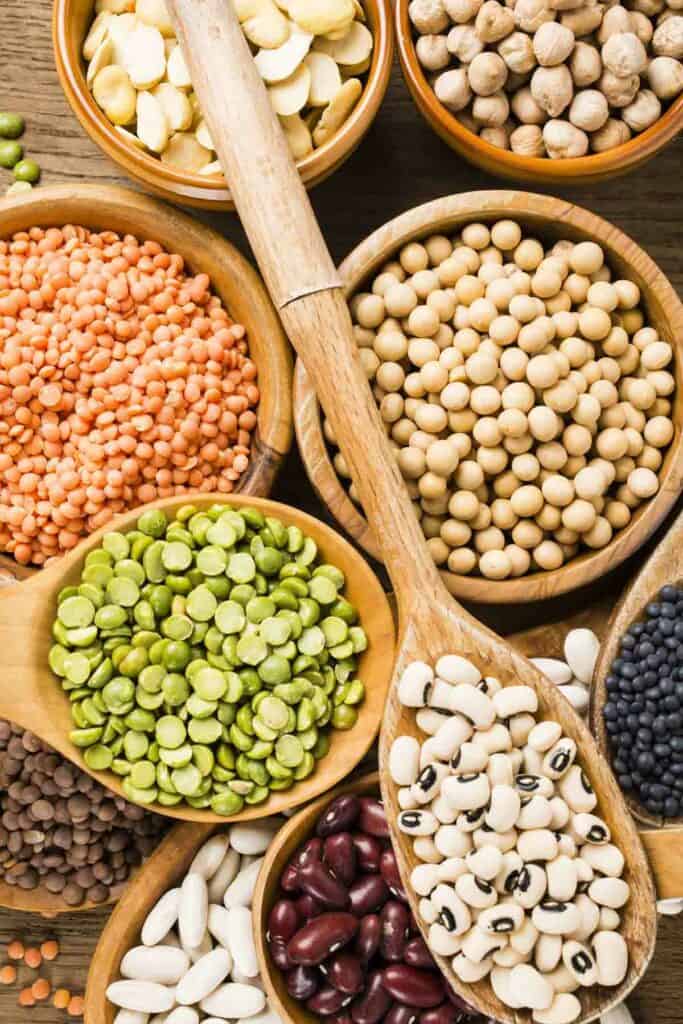Global Veganism Growth and Evolution Trends
Have you ever wondered how veganism has evolved and gained massive popularity on a global scale? From celebrities to influencers, more and more people are embracing a plant-based lifestyle. But what are the key trends behind this global vegan movement? Join us as we explore the growth of veganism, the cultural takes on vegan food, and the challenges faced by this burgeoning movement. Get ready to discover what’s driving the rise of sustainable and compassionate living practices worldwide.

Key Takeaways:
- Veganism is experiencing significant growth and evolving trends globally.
- Cultural traditions and local cuisines influence the adoption of plant-based diets in different societies.
- International vegan communities are formed through social media platforms and networking events.
- Challenges such as food accessibility and cultural resistance impact the global vegan movement.
- Veganism contributes to sustainable food choices and reduces environmental footprints.
Cultural Takes on Vegan Food
In this section, we will explore the cultural aspects of the vegan lifestyle, focusing on how different societies embrace plant-based diets. From Asian cuisines rich in tofu and vegetables to Mediterranean dishes showcasing the vibrant flavors of legumes and olive oil, vegan food reflects a fascinating tapestry of cultural traditions and local flavors.
By delving into the diverse culinary practices around the world, we can gain a deeper understanding of the global appeal of plant-based diets and the ever-evolving creativity of vegan cuisine. Let’s embark on a flavorful journey across continents, exploring plant-based recipes that are unique to specific regions.
The Influence of Cultural Traditions
Cultural traditions play a significant role in shaping dietary choices. From religious observances to cultural customs passed down through generations, vegan food often finds its roots in cultural practices. For example, Indian cuisine has a rich history of vegetarianism, with many traditional dishes naturally avoiding animal products. In countries like Japan, Buddhist philosophy has influenced the prevalence of plant-based diets, resulting in an array of satisfying vegan options.



Local Cuisines and Vegan Adaptations
Local cuisines offer a treasure trove of vegan delights, showcasing the versatility of plant-based ingredients. From Italian pasta dishes with tomato-based sauces to Mexican tacos filled with flavorful beans and vegetables, vegan adaptations of traditional dishes are becoming increasingly popular worldwide. These adaptations not only cater to individuals following a vegan lifestyle but also offer healthier alternatives to those seeking to incorporate more plant-based meals into their diet.
Plant-Based Diet Statistics
The increasing adoption of plant-based diets is a global phenomenon. According to recent statistics, the number of vegans in the United States has more than doubled over the past decade, with an estimated 9.7 million people now following a plant-based lifestyle. Furthermore, a survey conducted by Ipsos Retail Performance in 2020 found that 25% of Americans are actively reducing their meat consumption.
These statistics highlight the growing interest in veganism and the shift towards more sustainable and compassionate food choices. As more individuals recognize the impact of their dietary decisions on animal welfare, personal health, and the environment, the popularity of plant-based diets continues to rise.

International Vegan Communities
As the vegan lifestyle continues to gain traction, international vegan communities have emerged both online and offline. These communities play a crucial role in connecting like-minded individuals from different corners of the globe, fostering support, and sharing valuable resources.
One of the significant drivers behind the formation of these communities is the power of social media. Platforms such as Instagram, Facebook, and YouTube have provided a space for vegans to connect, share their journeys, and inspire others to embrace a cruelty-free lifestyle. Through hashtags, user-generated content, and dedicated vegan influencers, these platforms have created a global network of individuals passionate about veganism.
Additionally, offline events such as vegan festivals, conferences, and meetups serve as platforms for individuals to come together, exchange ideas, and strengthen the sense of community. These events feature food stalls, workshops, panel discussions, and guest speakers, offering attendees a chance to engage with others who share their values and beliefs.
In these international vegan communities, individuals have the opportunity to share their experiences, discuss challenges, and seek advice. From finding vegan-friendly restaurants in a foreign city to navigating social situations, these communities offer invaluable guidance and support.

Moreover, international vegan communities play a vital role in raising awareness about the vegan lifestyle and promoting a compassionate way of living. By organizing peaceful protests, disseminating educational resources, and engaging in advocacy campaigns, these communities strive to create a more compassionate world for all living beings.
Benefits of Joining an International Vegan Community
Joining an international vegan community can have numerous benefits, including:
- Building a supportive network of individuals who share the same values and beliefs.
- Getting inspiration and ideas for vegan recipes, lifestyle hacks, and ethical fashion choices.
- Accessing valuable resources and information on veganism, sustainable living, and animal rights activism.
- Participating in local and global initiatives that promote veganism and compassion.
- Expanding one’s knowledge about different cultural approaches to veganism and discovering unique plant-based dishes from around the world.
By joining an international vegan community, you can not only find support and guidance but also actively contribute to the growth and advancement of the global vegan movement.
Global Challenges for Veganism
In the global pursuit of veganism, we encounter several challenges that impact its widespread adoption. The journey towards a more compassionate and sustainable world is not without obstacles, and addressing these challenges is crucial for the continued growth of the vegan movement.

Food Accessibility
One of the primary challenges faced by vegans worldwide is the accessibility of plant-based food options. While vegan products and alternatives are increasingly available in many countries, there are still regions where it can be difficult to find affordable and diverse plant-based options.
In developing nations, limited access to fresh produce and plant-based protein sources pose additional challenges. Local agricultural practices and food distribution systems may not prioritize or adequately cater to the needs of vegan communities. As a result, individuals in these regions might face difficulties in adopting and maintaining a vegan lifestyle.
Cultural Resistance
Another challenge that veganism encounters is cultural resistance. Traditional beliefs, culinary traditions, and social norms can create barriers to the acceptance and adoption of plant-based diets. Cultural resistance may manifest in the form of skepticism, misconceptions, or reluctance to change dietary habits that have been ingrained for generations.
Awareness and education play a vital role in overcoming cultural resistance. By engaging in respectful dialogue, promoting the benefits of veganism, and showcasing diverse plant-based cuisines from different cultures, we can work towards breaking down these barriers and fostering a more inclusive and accepting society.



Governmental Policies
The support and implementation of supportive governmental policies are pivotal in driving the growth of the vegan movement. Unfortunately, many countries lack comprehensive policies that incentivize and prioritize sustainable, plant-based practices. Instead, agricultural subsidies often favor animal agriculture, which perpetuates an unsustainable food system.
Governmental policies have the potential to shape food production, distribution, and consumption patterns on a large scale. By advocating for policies that promote sustainable agriculture, reduce animal farming subsidies, and prioritize plant-based alternatives, we can create an enabling environment for the widespread adoption of veganism.
Vegan Market Analysis
As the demand for vegan products and alternatives continues to rise, businesses and industries are adapting to meet the growing needs of consumers. The vegan market has experienced substantial growth in recent years, with more companies introducing plant-based options across various sectors.
| Industry | Statistics |
|---|---|
| Food and Beverage | Global vegan food market expected to reach $31.4 billion by 2026 (1) |
| Beauty and Personal Care | Global vegan cosmetics market projected to reach $20.8 billion by 2025 (2) |
| Fashion and Apparel | Global sales of vegan leather projected to exceed $85 billion by 2025 (3) |

These statistics highlight the significant economic potential of the vegan market. With consumers increasingly prioritizing ethical and sustainable products, businesses that embrace veganism have a competitive advantage and contribute to the continued expansion of the global vegan movement.
By recognizing and addressing these global challenges, we can pave the way for a more inclusive, sustainable, and compassionate world. It is through collective action and collaboration that we can overcome these obstacles and create a brighter future for veganism and the planet as a whole.
Sustainable Food Choices
When it comes to making sustainable food choices, adopting a plant-based diet can have a significant impact on our planet. By choosing plant-based foods over animal products, we can contribute to mitigating climate change, conserving resources, and reducing our ecological footprints.
The production of meat, dairy, and eggs is associated with high greenhouse gas emissions, deforestation, and water pollution. In contrast, plant-based alternatives have a lower environmental impact and require fewer resources to produce. By opting for sustainable food choices, we can move towards a more eco-friendly lifestyle that supports the well-being of our planet.
Embracing sustainable food choices doesn’t mean sacrificing taste or variety. There is a wide array of delicious plant-based options available, ranging from fresh fruits and vegetables to whole grains, legumes, and plant-based proteins. These foods not only provide essential nutrients but also offer a diverse and flavorful culinary experience.

Packaging and Food Waste
In addition to choosing plant-based foods, minimizing packaging waste and reducing food waste are crucial aspects of sustainable living. Opting for products with minimal packaging or packaging made from recyclable materials can significantly reduce our ecological impact.
Moreover, being mindful of our food consumption can help minimize food waste. Planning meals, using leftovers creatively, and composting organic waste can contribute to a more sustainable food system. Together, these practices enable us to make a positive difference in our environment.
Practical Tips for Sustainable Living
Here are some practical tips to incorporate more sustainable food choices into your daily life:
- Prepare homemade meals using plant-based ingredients.
- Shop locally and seasonally to support sustainable farming practices.
- Opt for organic produce whenever possible.
- Avoid single-use plastic utensils and bring your own reusable ones.
- Explore plant-based seafood alternatives.
- Support local farmers’ markets and community-supported agriculture programs.
- Grow your own herbs, fruits, and vegetables, if space permits.
By making conscious choices and taking small steps, we can play our part in creating a more sustainable future. Together, let’s embrace sustainable food choices and commit to an eco-friendly lifestyle.
Plant-Based Nutrition Research
In recent years, there has been a growing body of scientific research that highlights the numerous health benefits of a plant-based diet. These studies have shed light on the positive impact of plant-based nutrition on human health, demonstrating its potential to reduce the risk of chronic diseases and improve overall well-being.
One notable study conducted by scientists at Harvard University found that individuals following a vegan lifestyle have a lower risk of developing heart disease compared to those who consume animal-based products. The research showed that plant-based diets, when properly balanced, can help lower cholesterol levels, decrease blood pressure, and promote a healthier cardiovascular system.
Furthermore, plant-based nutrition has been associated with a reduced risk of type 2 diabetes. A study published in the journal Diabetes Care revealed that adopting a vegan lifestyle can significantly lower the risk of developing this chronic condition. The researchers found that plant-based diets rich in whole grains, legumes, fruits, and vegetables provide essential nutrients and fiber that support blood sugar control and insulin sensitivity.



“The evidence is clear: a well-planned vegan diet can have numerous health benefits, including a reduced risk of heart disease, type 2 diabetes, obesity, and certain types of cancer.”
Moreover, plant-based nutrition research has shown promising results in the prevention and management of obesity. A comprehensive review published in the journal Obesity Reviews concluded that vegan diets are effective in promoting weight loss and maintaining a healthy body mass index (BMI). The high fiber content of plant-based foods, coupled with their lower calorie density, can contribute to feelings of satiety and aid in weight management.
Contrary to common misconceptions, plant-based diets can provide all the necessary nutrients for optimal health. Research has highlighted that a well-balanced vegan diet can fulfill nutritional requirements, including protein, iron, calcium, and omega-3 fatty acids.
Nutrient-rich plant-based foods:
- Legumes, such as lentils, chickpeas, and black beans, are excellent sources of protein and fiber.
- Leafy greens like spinach and kale provide essential vitamins and minerals, such as iron and calcium.
- Tofu and tempeh are alternatives rich in plant-based protein.
- Nuts and seeds, such as almonds and chia seeds, offer healthy fats and important micronutrients.
- Whole grains, including quinoa and brown rice, provide energy and fiber.
- Plant-based milk alternatives, fortified with vitamins and minerals, can be consumed to ensure adequate calcium intake.

By considering these nutrient-rich plant-based foods, individuals can embrace a vegan lifestyle while meeting their dietary needs and maintaining optimal health.
Conclusion
In conclusion, our exploration of the global growth and evolution of veganism has shed light on the remarkable changes taking place in our world. From cultural adaptations of vegan food to the formation of international vegan communities, the vegan movement has transcended borders and ignited a global shift towards more compassionate and sustainable living practices.
As we have discussed, the challenges faced by the vegan movement are varied, ranging from food accessibility to cultural barriers. However, these challenges have not deterred the progress being made. With each passing day, more people are recognizing the environmental and health benefits of embracing veganism.
The choices we make when it comes to food have a profound impact on our planet. By adopting plant-based diets and making sustainable food choices, we contribute to mitigating climate change, conserving resources, and reducing our ecological footprints. Furthermore, the research on plant-based nutrition reaffirms the positive effects of a vegan lifestyle on our overall well-being.
Looking ahead, we anticipate further growth and evolution of the global vegan movement. As awareness continues to expand and more individuals and communities embrace veganism, we move closer to a more compassionate and sustainable future for all.
FAQ
What are the current trends in global veganism?
The global vegan movement is experiencing significant growth and evolution. The current trends include an increasing number of people adopting plant-based diets, the rise of vegan-friendly products and restaurants, and the mainstream acceptance of veganism as a sustainable and compassionate lifestyle choice.
How is veganism embraced in different cultures?
Veganism is embraced differently in various cultures, with each region showcasing its unique take on plant-based diets. Cultural traditions, local cuisines, and innovative recipes are incorporated into vegan lifestyles around the world. This cultural diversity adds depth and flavor to the vegan movement.
Are there international vegan communities?
Yes, there are international vegan communities both online and offline. These communities provide support, information, and a sense of belonging for vegans worldwide. They promote and raise awareness about veganism, allowing individuals to connect and share experiences on their compassionate journey.
What challenges does the global vegan movement face?
The global vegan movement faces challenges such as food accessibility, cultural resistance, and governmental policies. While the availability of vegan options continues to improve, some areas still lack access to plant-based foods. Cultural traditions and societal norms can also present resistance to veganism. Governmental policies play a role in supporting or hindering the growth of veganism.
Why are sustainable food choices important?
Sustainable food choices, including plant-based diets, are crucial for the environment and future generations. By reducing reliance on animal agriculture, we can mitigate climate change, conserve natural resources, and minimize our ecological footprint. Sustainable food choices also promote animal rights and support a healthier planet.
What does plant-based nutrition research show?
Plant-based nutrition research demonstrates the numerous health benefits of adopting a vegan lifestyle. Studies indicate a reduced risk of chronic diseases, improved heart health, lower cholesterol levels, and a higher intake of essential vitamins and minerals. Balanced plant-based diets can provide all the necessary nutrients for optimal well-being.






